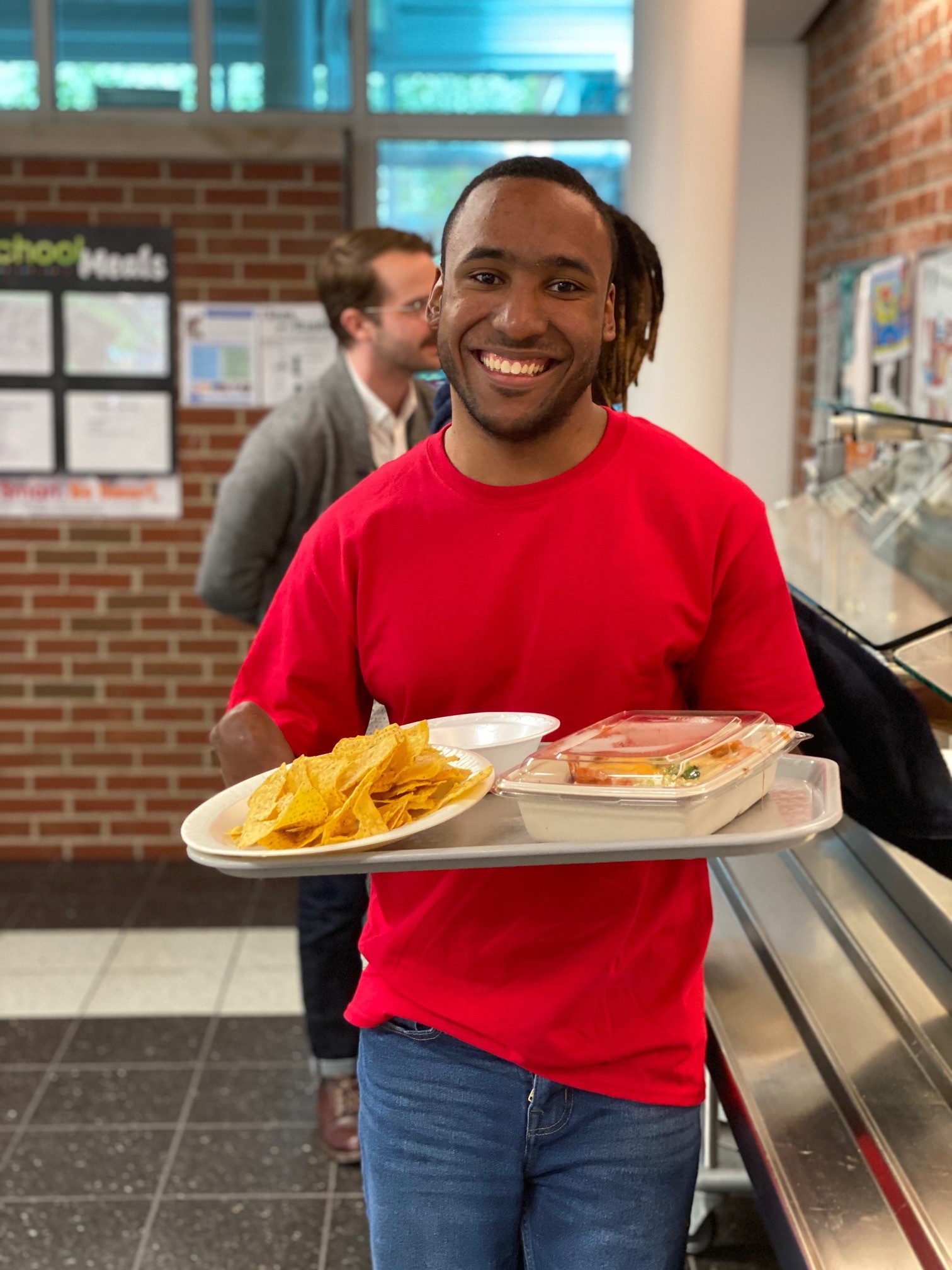Academic Awards Celebrate Successful School Year
The conclusion of the school year gave Mercy Home the opportunity to celebrate our young people’s academic and professional achievements...
July 9, 2025
June 15, 2020
The COVID-19 crisis brought much of the world to a halt, but young people living at Mercy Home, like Jamal, are doing anything but standing still. In fact, staying active remains a top priority in supporting our kids’ mental health needs – ensuring that they remain positive and energetic.
Whether it’s going to the gym, the soccer building, or doing arts and crafts, Jamal says Mercy Home has done a great job at organizing activities to keep kids active.
“They’re definitely keeping us healthy and letting us regulate ourselves by burning energy,” he said. “It makes you feel good to get your blood pumping, get your heart rate up, and get exercise, which is really important in these times when it’s so easy to just crash on the couch, watch movies, or sleep in.”
Studies show that staying active is good medicine for treating many mental health challenges, like depression and anxiety, both of which can be triggered during times of high stress. Staying active also improves cognitive abilities, helps people sleep better, and acts as a mood booster.
Alban Fisher, Mercy Home’s clinical director, couldn’t agree more.
“We want to keep that energy level up,” he said. “It’s important not to let our young people slide back or regress. We want to retain a lot of the gains that they have made while living at Mercy Home.”
But staying active in the midst of challenging circumstances means adapting, while being creative and flexible. Fisher says Mercy Home’s live-in staff have done just that by designing a tailor-made schedule that not only promotes a healthy group dynamic, but individual needs as well.
All of these recreational activities and enrichment projects, like structured game time, basketball and soccer games, art therapy, or going on walks around campus, help reduce stress – a key element for maintaining optimum mental health.
“A lot of our kids are at risk for depression,” said Fisher. “We want to bolster their coping skills so they don’t go into that space where they start to feel helpless and pessimistic about things.”
Jamal says he feels the impact such activities are having on his coping skills.
“Mercy Home staff introduced small video games tournaments, yoga, and painting,” he said. “It’s actually pretty well rounded. All those things help me stay positive.”
Mercy Home coworkers have had to work even harder to help our kids cope with stress levels, because many of our kids’ social support structures have been upended or erased due to social distancing restrictions.
“Whether it be their girlfriend, or buddies at school, or just being able to go visit their grandmother – all that stuff was taken away from these guys,” said Fisher.

Mercy Home’s therapists helped absorb the stress of losing such important social supports. In an era of social distancing and stay-at-home orders, if they couldn’t meet face-to-face, therapists utilized videoconference platforms to meet with kids and families.
“Our kids have developed very positive relationships with their therapist and they see that as a primary support when they’re dealing with stress,” said Fisher. “To stop that so abruptly is not therapeutic at all. So we were really committed to maintaining that connection and showing kids that we could work through the barriers.”
While creative adaptation has been fundamental in encouraging positive mental health for our kids, maintaining routines and rituals has also played a key role in striking a healthy balance.
“It’s a stressful time, for sure,” said Fisher. “After you absorb the initial shock, you want to get back to life as normal as possible, right? Just to show people that you can cope, move on, and keep living life.”
While Jamal loves the various enrichment projects and recreational activities, he loves the predictability of his daily routine. He wakes up, brushes his teeth, and gets ready for work at his job in the cafeteria. After work, he does an activity and then comes back to his program to do a chore. Then he goes to bed after a shower. Monday through Friday, that reliability creates sense of comfort and dependability.
Jamal’s job in the cafeteria – setting up for meal service, clearing dishes, and cleaning up – has provided extra motivation and incentive during this difficult time.
“Working in the cafeteria has really helped me stay positive because, not only am I helping my fellow youth and our staff who are helping us during this trying time, I’m also building my job skills for when I leave Mercy Home,” he said. “I’m very lucky to do that, considering we’re in the middle of a pandemic.”

At the end of a long day of activities, exercise, and work Jamal still likes doing what he’s always done: checking in with his favorite four-legged friend, Pongo, Mercy Home’s facility dog. Pongo continues to provide unconditional love and comfort for our kids during this stressful time. If anything, Pongo’s presence reassures kids like Jamal that Mercy Home’s love and support is unyielding, even during a pandemic.
“Everyone has done a really great job of keeping a sense of normalcy around Mercy Home in this abnormal time,” he said. “That’s made all the difference in the world.”
The conclusion of the school year gave Mercy Home the opportunity to celebrate our young people’s academic and professional achievements...
July 9, 2025
Following the last day of classes for Chicago Public Schools, our young people were greeted by Hope and Poppy, two...
July 9, 2025
At Mercy Home, we stress the importance of giving back to the community. Some of our young men spent a...
June 26, 2025
Comments